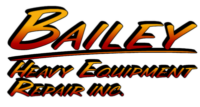When to Schedule Maintenance for Your Farm Equipment
Farm equipment requires proper maintenance to function efficiently and to provide service for a long time. Also, proper maintenance saves you from delays and expensive repairs. Additionally, it ensures that the machine operators and other people on the farm are safe from injuries. Are you wondering, "What is a good time to do maintenance on farm equipment?" We have a guide to help you.
Equipment Cleaning
Cleaning farm equipment is one of the easiest yet very important parts of maintenance. Ensure your machine is free from dust, dirt and mud, even if it means cleaning it daily. Doing so makes it easy to spot problems such as oil leaks, rusting, wear and tear. You should also make sure that the interior of your equipment is clean, vacuuming and removing buildup from time to time.
Lubricating the Machine
Moving parts of farm equipment should be regularly lubricated to reduce friction and extend the life expectancy of a machine. Ensure you use a high-quality lubricant to avoid damaging the moving parts. Before adding new lubricant, clean the machine and clear it of any buildup. You can also check the condition of the moving parts of the machines to check whether they need lubrication. Additionally, you can watch out for signs like unnecessary sounds produced by a machine when it’s moving, which can signify a need for lubrication.
Oil Testing and Analyses
One of the most crucial things that should be included in routine maintenance is regular oil testing. By doing so, you can detect failures before they turn into a big problem that can cost you a lot of money to fix.
It’s also crucial to conduct regular oil analyses. By doing so, you can easily pinpoint problems and act before they worsen.
How do you know when you are supposed to maintain your farm equipment? This depends on several factors, such as the type of the machine, its frequency of usage, and manufacturer specifications. On top of the routine maintenance practices discussed above, you should also watch for signs that your equipment needs maintenance. Some of the things you can look out for include strange sounds from the equipment. Weird sounds could signal problems with steering, hydraulic systems and combustion problems. If your equipment starts producing strange sounds, such as screeching, hissing or grinding, it might be time to do some maintenance.
Additionally, if the equipment starts vibrating, overheating or any other abnormal thing, that could signal a problem that can be fixed by doing maintenance.
Also, you should always let the equipment manual guide you. Doing so ensures that the equipment is in good condition and can help you in case you experience issues with the machine and you need to request a warranty repair or replacement.
Properly maintaining your farm equipment is crucial, as it helps them work efficiently and reduce instances of breakdown. That ensures production is not stalled and also saves you from repair costs. If you are wondering, "When should maintenance be scheduled for farm equipment?" do the above to keep your equipment in good shape.
